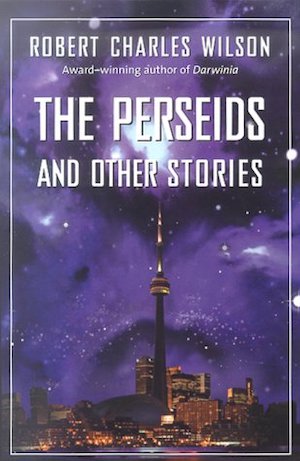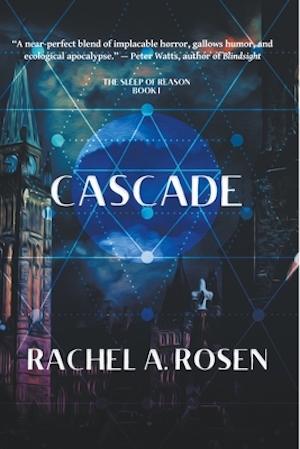As mentioned in a footnote for a previous article,
“There’s a special class of comfort fictions whose appeal is that as badly as my day might be going, at least it’s not as bad as the protagonists’ day. Threads, for example.”
This might seem counterintuitive (or perhaps not: a lot of people enjoyed Garbage’s “Only Happy When It Rains” and perhaps you are one of them). I assure you that this coping mechanism definitely works. Not only that, but speculative fiction authors have your back in the matter of stories that start off bleak before rapidly becoming bleaker.
Consider these five tales.
The Last Man by Mary Shelley (1826)

Set in a 21st century oddly similar to the 19th in which the book was written, Shelley’s apocalyptic novel begins optimistically enough. The British monarchy falls. England is a republic once more. Despite the usual sort of foreign wars plaguing the world on the other side of the channel, it seems England at least can hope for political progress in the days to come.
This is a sadly misplaced hope.
The characters’ inability to avoid personal entanglement in overseas conflicts are the least of their problems. A new and deadly pathogen is sweeping the world. Just as the Black Death made it across the channel, so too does the new plague. Unlike the Black Death, the plague does not leave survivors in its wake. Will our heroes be able to find some sufficiently isolated hiding place to wait out doomsday? Consider the title of the work….
“All Summer in a Day” by Ray Bradbury (1954)

This very much pre-Mariner 2 version of Venus is a tropical world continually beset by nearly endless rainstorms. Having never seen the sun, children raised on Venus do not appreciate what they are missing. Earth-born Margot does, remembering the blue skies of the planet of her birth.
The important term is “nearly endless.” Every seven years the skies briefly clear. Margot may be stuck on Venus but at least she and her classmates will be able to see blue sky and direct sunlight, if only for a moment. At least, Margot could, if her classmates were not beastly little brutes who pick exactly the worst moment to lock Margot in a closet.
Zorachus by Mark E. Rogers (1986)

From the author who brought us the light-hearted Samurai Cat parodies comes a tale in which pious, kind-hearted wizard Zorachus is dispatched to Khymir, the world’s wickedest city. Zorachus is very nearly a living saint. Victory is assured! Although not for Zorachus.
The people of Khymir embrace and embody every possible variation of depravity, debauchery, and cruelty. They might seem ideal candidates for conversion to virtue. However, they prove far more adept at convincing naïve Zorachus to embrace temptation than the saint is at resisting temptation.
Divided by Infinity by Robert Charles Wilson (1998)

Life’s many calamities failed to kill Bill Keller…or did they? His reward for surviving sixty years is bereavement: Bill Keller lives in a Toronto now sad and barren after the recent death of his wife, Lorraine. Grief brings leads him to contemplate suicide, which Keller resists…or does he?
Lorraine’s former employer, Zeigler, takes pleasure in the fact that simple survival delivers one to an increasingly science fictional universe. Zeigler does not appreciate just how true that is. Bill Keller will receive a very personal education in the implications of the Many Worlds model, which delivers survival whether or not one wants it…but also death in uncountable variations, as well as endless, inescapable isolation.
Cascade by Rachel A. Rosen (2022)

Political divisions, climate change and the sudden return of magic delivered the death blow to the United States of America, now collapsed into warring dystopian states. Calamity for Americans is a godsend for smug Canadians. Unlike poor America, Canada’s democratic institutions proved sufficiently robust to weather the 21st century’s crises.
Dispassionate observers might point out to self-congratulatory Canadians that the Titanic kept afloat for more than two hours after hitting the iceberg. The Party might believe it is Canada’s natural ruling party, the embodiment of “peace, order and good government,” but it is mistaken. Prime Minister Patrice Abel has never seen an embarrassing scandal into which his uncontrolled libido could not propel him. The Party’s success is thanks to political wizard Ian Mallory and his prophetic gifts.
Mallory can see all futures. What he does not share with his allies is that all of those futures are terrible. He cannot guide the Party to victory. He cannot protect Canada from its own native-born fascists. Indeed, he cannot even save himself. All he can hope for is the least-bad choice from a wealth of terrible options.
***
No doubt those of you who enjoy this sort of reveling in doom have your own favourites, works not mentioned here. Feel free to point out the publications I overlooked. Comments are, as ever, below.
In the words of fanfiction author Musty181, prolific book reviewer and perennial Darwin Award nominee James Davis Nicoll “looks like a default mii with glasses.” His work has appeared in Publishers Weekly and Romantic Times as well as on his own websites, James Nicoll Reviews (where he is assisted by editor Karen Lofstrom and web person Adrienne L. Travis) and the 2021 and 2022 Aurora Award finalist Young People Read Old SFF (where he is assisted by web person Adrienne L. Travis). He is a four-time finalist for the Best Fan Writer Hugo Award, and is surprisingly flammable.










